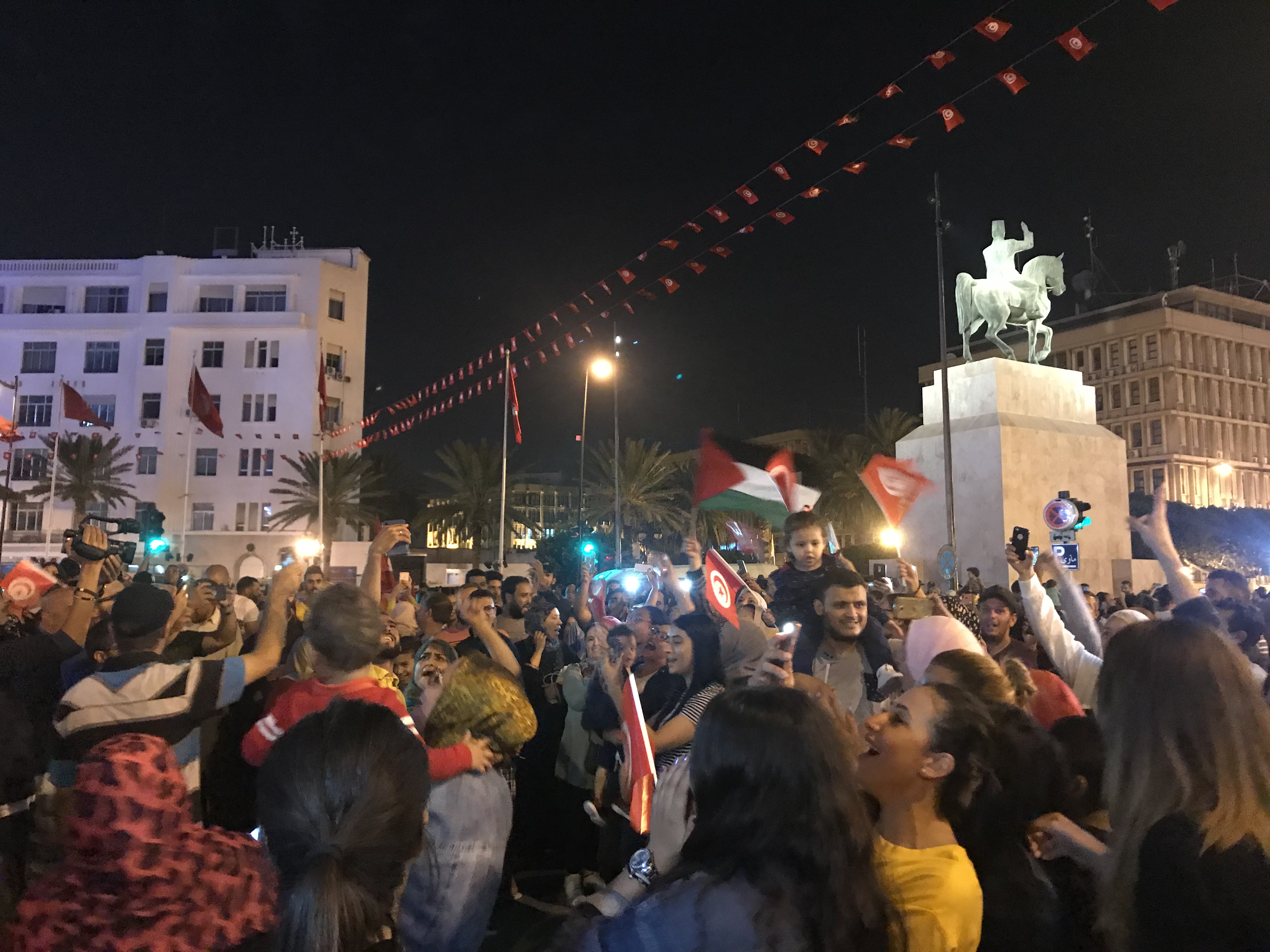Independent candidate Kais Saied won a clear victory in Sunday’s presidential election in Tunisia, two exit polls projected, although no official results had yet been announced.
Saied, a retired law professor with conservative social views, spent barely any money on an election campaign that has seized the imagination of voters with its promise to bring back the values of Tunisia’s 2011 revolution that introduced democracy.
Emrhod Consulting gave him 72.53 percent of votes and his opponent, Nabil Karoui, 27.47 percent in a poll published by private media companies, while Sigma Consulting gave Saied 76.9 percent and Karoui 23.1 percent in a poll published by state television.
Karoui, who spent weeks in detention pending his corruption trial before he was freed Wednesday, may appeal against Saied’s win if it is confirmed by official results and then the electoral commission.

One of the foreign election monitoring missions in Tunisia said earlier Sunday that Karoui’s detention had raised concerns about the vote, saying it was “not business as usual.”
Karoui denies charges of money laundering and tax evasion, but the verdict in his trial is still pending.
Crowds of Saied supporters began gathering on the grand, tree-lined Habib Bourguiba Avenue in central Tunis soon after polls closed, cheering slogans from the 2011 revolution in anticipation of him winning.
Where in 2011 they gathered to chant “the people want the fall of the regime,” Sunday night they chanted, “The people want a strong Saied,” holding candles and setting off fireworks.
Elsewhere in Tunis city center, cars drove around the streets, honking their horns in celebration.
If he is confirmed as president, Saied will face a difficult moment in Tunisian political history.
The Parliament elected last week is deeply fractured and though the moderate Islamist Ennahda Party that took most seats backed him Sunday after its own candidate was beaten in the first round, it may struggle to put together a ruling coalition.
The prime minister, chosen by Parliament, has more direct powers than the president, but since he is the most senior elected official in Tunisia, he shoulders much of the public praise or blame for the state of the country.
All recent governments have been bedeviled by economic ills: unemployment of 15 percent, inflation of 6.8 percent, high public debt, a powerful union that opposes economic reforms and foreign lenders who demand them.
However, with voter turnout higher than in other recent elections in Tunisia, Sunday’s poll appears to have reversed a recent trend of disillusionment with politics.
The electoral commission said after polls closed that turnout was at least 57.6 percent and could rise.
In the first round of the presidential election, which put Saied and Karoui through to the runoff above 24 other candidates, turnout was only 45 percent.
The two candidates offered starkly different options for president.
Saied has the backing of leftists and Islamists, and wants Tunisia to adopt an experimental form of direct democracy. Karoui courted the poor, showcasing his philanthropy on the TV station he owns but also appealed to the business elite and to some secular Tunisians worried about Saied’s conservative social views.
Both candidates presented themselves as outsiders taking on an establishment that has failed to improve Tunisia’s economy or arrest a decline in living standards since revolution.
At a polling station in the working-class Ettadamon district Sunday, a man stood haranguing passersby, urging them to vote against Karoui, until a policeman asked him to quiet down.
Inside, Hanan Madouri, a 25-year-old call center worker in a big straw hat, voted for Saied, citing the corruption trial hanging over Karoui. “I want to vote for a correct, serious person,” she said.
Opposite the polling station, Othman Dabbousi, 63, sat next to his fruit stand and said he would not vote, preferring a nondemocratic system of rule. “There is a lot of chaos in this country and it needs a strong man,” he said.
Nearby, a soldier stood with a hand on her assault rifle watching over the polling station, a reminder of the militant attacks that have sporadically shaken Tunisia, threatening its tourism industry and alarming voters.
Reuters
















Comments About This Article
Please fill the fields below.